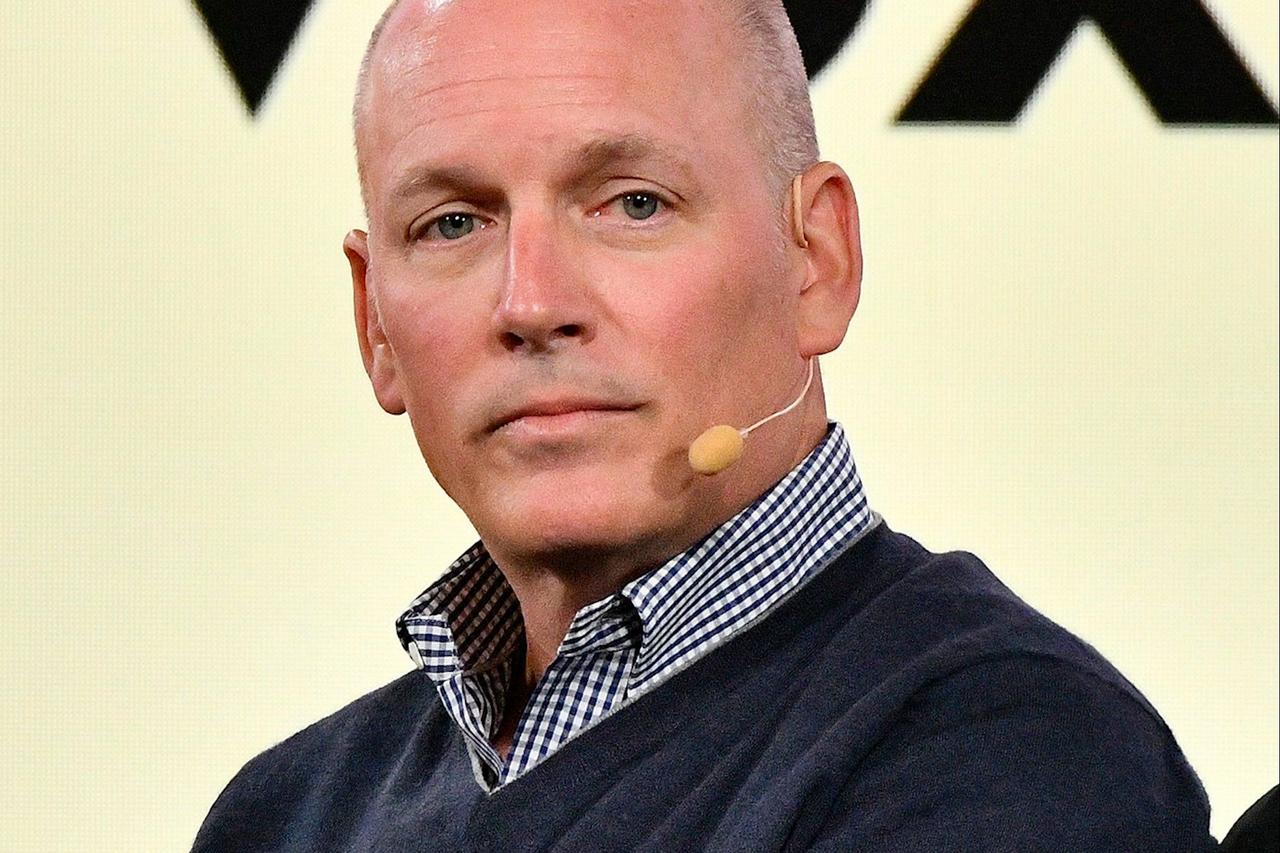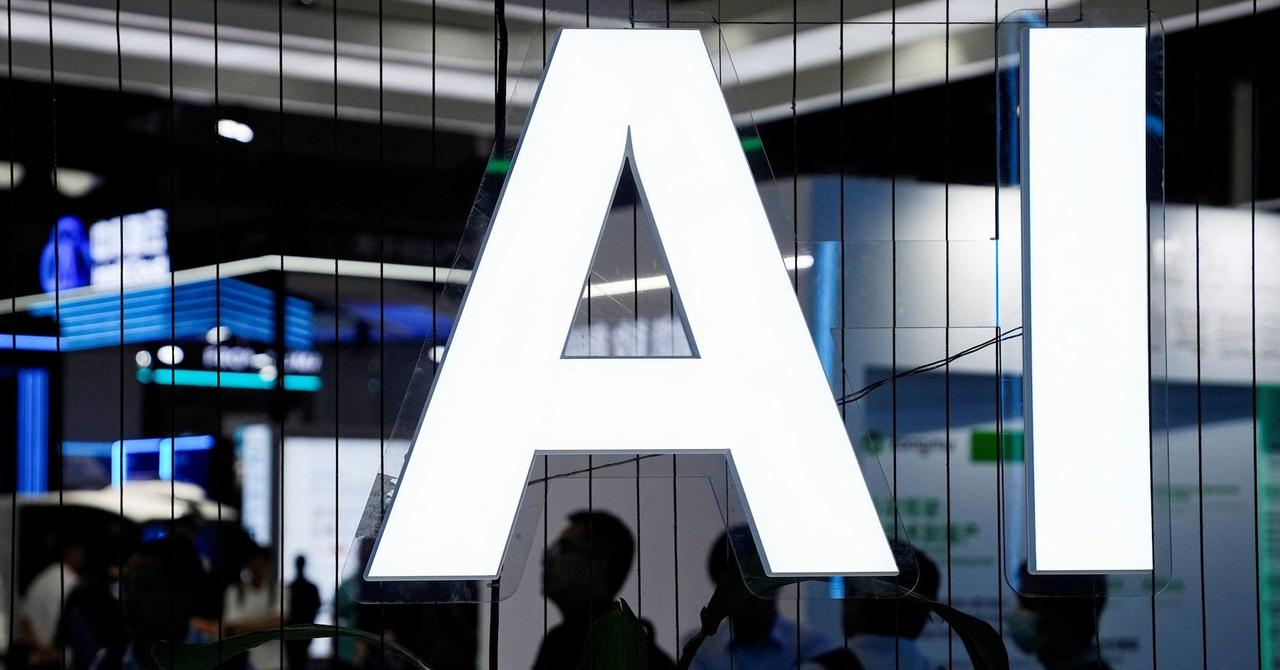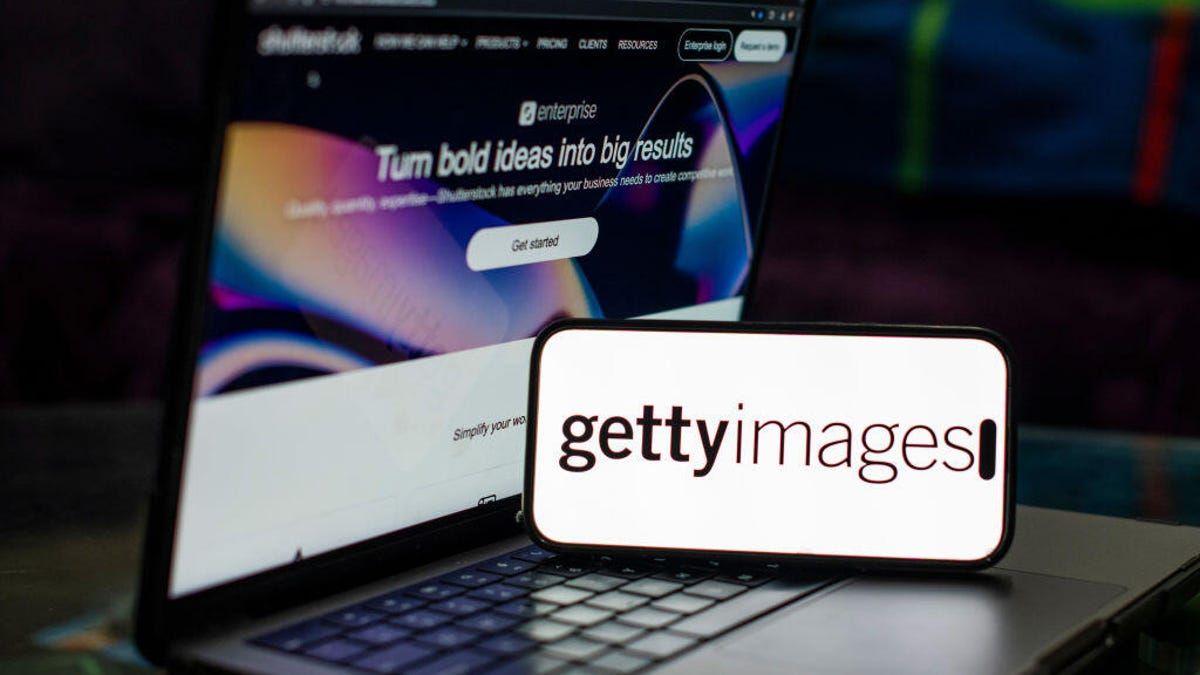Getty Images Spends Millions in Legal Battle Against AI Copyright Infringement
6 Sources
6 Sources
[1]
It's too expensive to fight every AI copyright battle, Getty CEO says
In some ways, Getty Images has emerged as one of the most steadfast defenders of artists' rights in AI copyright fights. Starting in 2022, when some of the most sophisticated image generators today first started testing new models offering better compositions, Getty banned AI-generated uploads to its service. And by the next year, Getty released a "socially responsible" image generator to prove it was possible to build a tool while rewarding artists, while suing an AI firm that refused to pay artists. But in the years since, Getty Images CEO Craig Peters recently told CNBC that the media company has discovered that it's simply way too expensive to fight every AI copyright battle. According to Peters, Getty has dumped millions into just one copyright fight against Stability AI. It's "extraordinarily expensive," Peters told CNBC. "Even for a company like Getty Images, we can't pursue all the infringements that happen in one week." He confirmed that "we can't pursue it because the courts are just prohibitively expensive. We are spending millions and millions of dollars in one court case." Getty sued Stability AI in 2023, after the AI company's image generator, Stable Diffusion, started spitting out images that replicated Getty's famous trademark. In the complaint, Getty alleged that Stability AI had trained Stable Diffusion on "more than 12 million photographs from Getty Images' collection, along with the associated captions and metadata, without permission from or compensation to Getty Images, as part of its efforts to build a competing business." As Getty saw it, Stability AI had plenty of opportunity to license the images from Getty and seemingly "chose to ignore viable licensing options and long-standing legal protections in pursuit of their stand-alone commercial interests."
[2]
Getty Images spending millions to battle a 'world of rhetoric' in AI suit, CEO says
LONDON -- Getty Images is spending millions of dollars to take on a "world of rhetoric" through its Stability AI suit, the photo licensing company's boss Craig Peters says. Peters told CNBC in an interview that both Stability AI -- the U.K.-based startup best known for its text-to-image model Stable Diffusion -- and other AI labs are stealing copyright-protected material to train their AI models for commercial gain. These firms, he said, are taking copyrighted material to develop their powerful AI models under the guise of innovation and then "just turning those services right back on existing commercial markets." "That's disruption under the notion of 'move fast and break things,' and we believe that's unfair competition," Peters added. "We're not against competition. There's constant new competition coming in all the time from new technologies or just new companies. But that's just unfair competition, that's theft." Getty is suing Stability AI in both the U.K. and U.S. over allegations that the company copied 12 million images without permission or compensation "to benefit Stability AI's commercial interests and to the detriment of the content creators." Stability AI has contested the legal action, saying it doesn't consider Getty's claims to have merit. The company acknowledges some images from Getty Images websites were used to train its Stable Diffusion model. However, the firm denies it's liable in respect to any of the claims Getty has made.
[3]
Getty Images CEO warns it can't afford to fight every AI copyright case
Big quote: Getty Images has found itself at the center of a heated global debate over artificial intelligence and copyright, but the company's chief executive says the costs of defending artists' rights in court are becoming unsustainable. In a recent interview with CNBC, Getty Images CEO Craig Peters described the financial burden of challenging AI companies that use copyrighted material to train their models, revealing even a major player like Getty cannot afford to pursue every potential infringement. Peters explained that Getty's ongoing lawsuit against Stability AI, maker of the popular image generator Stable Diffusion, has already cost the company a huge amount of money. "Even for a company like Getty Images, we can't pursue all the infringements that happen in one week," Peters told CNBC. "We can't pursue it because the courts are just prohibitively expensive. We are spending millions and millions of dollars in one court case." "We are spending millions and millions of dollars in one court case" The dispute centers on Getty's allegation that Stability AI copied 12 million images from its collection without permission or compensation, using them to train its AI system and, in Getty's view, to build a competing business. Stability AI has acknowledged that some Getty images were used in training but disputes any liability, arguing its practices fall under the fair use doctrine, which allows limited use of copyrighted material in certain circumstances. Peters is unconvinced by AI companies' arguments that paying for access to creative works would stifle innovation. "We're battling a world of rhetoric," he said, accusing firms of using the promise of technological progress to justify what he calls unfair competition. "That's disruption under the notion of 'move fast and break things,' and we believe that's unfair competition." He said Getty Images is not against competition - but what these firms are doing is theft. The legal battle between Getty and Stability AI is just one of several high-profile copyright cases currently facing the artificial intelligence industry. Other lawsuits, such as The New York Times' action against OpenAI and record labels' suits against AI music generators, reflect growing concerns about the use of copyrighted material in AI training. Yet, as Peters points out, the sheer scale and cost of litigation make it impossible for most rightsholders to challenge every instance of alleged infringement. Getty's strategy has not been limited to the courtroom. The company has also advocated for stronger copyright protections in policy discussions, recently urging the US government to reject proposals that would weaken artists' rights in the name of AI development. In a submission to the Trump administration, Getty argued that US copyright laws are not obstructing the path to continued AI progress, but instead provide a foundation for sustainable innovation that benefits society as a whole. Despite the mounting costs and uncertain legal landscape, Peters remains committed to defending creators' rights. "I think our case is very strong," he said, while acknowledging the challenges of litigating across different jurisdictions and legal systems. "The facts in aggregate at a global scale I think are absolutely in our favor. How they manifest themselves around the geographic and legal constructs that are there I think is still stuff that we're going to have to continue to play out."
[4]
Getty Images CEO warns it can't afford to fight every AI...
Big quote: Getty Images has found itself at the center of a heated global debate over artificial intelligence and copyright, but the company's chief executive says the costs of defending artists' rights in court are becoming unsustainable. In a recent interview with CNBC, Getty Images CEO Craig Peters described the financial burden of challenging AI companies that use copyrighted material to train their models, revealing even a major player like Getty cannot afford to pursue every potential infringement. Peters explained that Getty's ongoing lawsuit against Stability AI, maker of the popular image generator Stable Diffusion, has already cost the company a huge amount of money. "Even for a company like Getty Images, we can't pursue all the infringements that happen in one week," Peters told CNBC. "We can't pursue it because the courts are just prohibitively expensive. We are spending millions and millions of dollars in one court case." "We are spending millions and millions of dollars in one court case" The dispute centers on Getty's allegation that Stability AI copied 12 million images from its collection without permission or compensation, using them to train its AI system and, in Getty's view, to build a competing business. Stability AI has acknowledged that some Getty images were used in training but disputes any liability, arguing its practices fall under the fair use doctrine, which allows limited use of copyrighted material in certain circumstances. Peters is unconvinced by AI companies' arguments that paying for access to creative works would stifle innovation. "We're battling a world of rhetoric," he said, accusing firms of using the promise of technological progress to justify what he calls unfair competition. "That's disruption under the notion of 'move fast and break things,' and we believe that's unfair competition." He said Getty Images is not against competition - but what these firms are doing is theft. The legal battle between Getty and Stability AI is just one of several high-profile copyright cases currently facing the artificial intelligence industry. Other lawsuits, such as The New York Times' action against OpenAI and record labels' suits against AI music generators, reflect growing concerns about the use of copyrighted material in AI training. Yet, as Peters points out, the sheer scale and cost of litigation make it impossible for most rightsholders to challenge every instance of alleged infringement. Getty's strategy has not been limited to the courtroom. The company has also advocated for stronger copyright protections in policy discussions, recently urging the US government to reject proposals that would weaken artists' rights in the name of AI development. In a submission to the Trump administration, Getty argued that US copyright laws are not obstructing the path to continued AI progress, but instead provide a foundation for sustainable innovation that benefits society as a whole. Despite the mounting costs and uncertain legal landscape, Peters remains committed to defending creators' rights. "I think our case is very strong," he said, while acknowledging the challenges of litigating across different jurisdictions and legal systems. "The facts in aggregate at a global scale I think are absolutely in our favor. How they manifest themselves around the geographic and legal constructs that are there I think is still stuff that we're going to have to continue to play out." Permalink to story:
[5]
Getty Images 'Spending Millions' Fighting Stability AI in Court Over Copyright
Getty Images CEO Craig Peters says the company is spending "millions and millions of dollars" in its legal battle with Stability AI. The dispute stems from a 2023 lawsuit Getty filed against Stability AI, the developer of the popular image generation model Stable Diffusion. Getty alleges that the AI firm scraped more than 12 million copyright-protected images from its platform without permission or compensation to train its model, a move the company says harms both its business and the creators it represents. "We're spending millions and millions of dollars in one court case," Peters tells CNBC. "Even for a company like Getty Images, we can't pursue all the infringements that happen in one week. We can't pursue it because the courts are just prohibitively expensive." Despite the cost, Getty believes the case is essential. "We're battling a world of rhetoric," he says. "That's disruption under the notion of 'move fast and break things,' and we believe that's unfair competition." Getty accuses Stability AI of turning copyrighted content into a commercial AI product that directly competes with Getty's core business. "They're just turning those services right back on existing commercial markets," Peters says. "We're not against competition ... But that's just unfair competition, that's theft." Stability AI has denied liability and argues that its training practices are legally permissible. The company acknowledges that it used images from Getty's websites but claims that its AI creates new, non-replicative works and does not reproduce the original images. The firm has cited doctrines like "fair use" and "temporary copying" as legal defenses, maintaining that the AI's output constitutes a transformative use of the material. "Stability AI will be arguing that the output AI-generated does not actually reproduce the original image at all, such that it cannot be copyright infringement," Sukanya Wadhwa, an associate at intellectual property law firm Brandsmiths, tells CNBC. The courts must also consider where the AI training took place, this unanswered question has forced Getty to file lawsuits in the US and the UK. "To be candid, we didn't know where this training took place," he says. "There are elements where we have to go through and then we've got to spend money for due diligence, and they resist and we've got to fight, and we go back and forth." The initial trial to determine liability in Getty's case against Stability AI is scheduled to begin on June 9. Getty is reportedly seeking $1.7 billion in damages.
[6]
'Extraordinarily Expensive': Getty Images Is Pouring Millions of Dollars Into One AI Lawsuit, CEO Says
Getty CEO Craig Peters said that the company has spent millions of dollars on the case. Getty's CEO says it is costing the company millions of dollars to fight a leading AI firm in court over alleged copyright infringement. In January 2023, Getty Images launched a lawsuit against Stability AI, the company behind a popular text-to-image generator, Stable Diffusion. Getty, one of the world's largest stock photo companies, alleged that Stability AI illegally scraped more than 12 million copyright-protected photos, videos, and illustrations from its website to train its AI image generator. Now, Getty CEO Craig Peters says that though he believes Getty has a "very strong" case against Stability AI, fighting the AI company in court has been costly. "We're spending millions and millions of dollars in one court case," Peters told CNBC on Wednesday, calling the effort "extraordinarily expensive." Related: Getty Images Has Started Legal Proceedings Against an AI Generative Art Company For Copyright Infringement Peters said that though copyright infringements happen every week, Getty is selectively choosing to fight against Stability AI in court because "the courts are just prohibitively expensive" to pursue every infringement. AI image generators are popular. Emad Mostaque, Stability AI's CEO until March 2024, told Bloomberg in October 2022 that Stable Diffusion had more than 10 million daily users, and that people tapped into the AI image generator for everything from designing apps to creating slideshows. As of April 2024, one in five Americans were using AI to create images and videos. Peters accused Stability AI of stealing Getty's copyright-protected material to develop AI models as part of a competing business. He said that AI companies are making the argument that paying for access to creative works would "kill innovation" by raising costs, but argues that taking copyrighted work without permission or compensation is really stealing. "We're not against competition," Peters told CNBC. "But that's just unfair competition, that's theft." Stability AI argues that its AI model was trained on Getty Images through "temporary copying," which is momentarily copying the picture to train the dataset. However, the AI company argues that its AI ultimately creates new pictures and does not replicate its training content in the final images it generates. In short, the end AI-generated image has no copy of the original training data. It's unclear whether temporary copying is legal, but courts are analyzing it for other generative AI cases. Related: Getty and Shutterstock Are Merging. Here's What It Means for Creators and Businesses. Getty is suing Stability AI in both the U.S. and the U.K. because the AI training could have taken place in either location. Getty is reportedly seeking $1.7 billion in damages, according to its latest company accounts. The case is set for an initial trial on June 9. In a separate case, a group of artists filed a class-action lawsuit in January 2023 against Stability AI and other AI image generator companies like Midjourney and DeviantArt, alleging copyright infringement. The artists alleged that these companies trained AI on their work without their permission. That case is moving forward to discovery.
Share
Share
Copy Link
Getty Images CEO Craig Peters reveals the company is spending millions in a legal battle against Stability AI over copyright infringement, highlighting the challenges of defending artists' rights in the AI era.
Getty Images Takes on AI Copyright Infringement
Getty Images, a leading provider of stock photography, has found itself at the forefront of a heated debate over artificial intelligence and copyright infringement. The company's CEO, Craig Peters, recently revealed that Getty is spending "millions and millions of dollars" in a legal battle against Stability AI, highlighting the significant financial burden of defending artists' rights in the AI era
1
.
Source: Entrepreneur
The Lawsuit Against Stability AI
In 2023, Getty Images filed a lawsuit against Stability AI, the developer of the popular image generation model Stable Diffusion. The company alleges that Stability AI scraped more than 12 million copyright-protected images from Getty's platform without permission or compensation to train its AI model
2
.Peters explained the rationale behind the lawsuit: "They're just turning those services right back on existing commercial markets. That's disruption under the notion of 'move fast and break things,' and we believe that's unfair competition"
3
.The Financial Burden of Legal Action
The cost of pursuing legal action has proven to be a significant challenge for Getty Images. Peters stated, "Even for a company like Getty Images, we can't pursue all the infringements that happen in one week. We can't pursue it because the courts are just prohibitively expensive"
4
.
Source: Ars Technica
This revelation underscores the broader issue facing content creators and copyright holders in the age of AI. The sheer scale and cost of litigation make it impossible for most rightsholders to challenge every instance of alleged infringement.
Stability AI's Defense
Stability AI has contested the legal action, arguing that its practices fall under the fair use doctrine. The company acknowledges using some Getty images in training but disputes any liability, claiming that its AI creates new, non-replicative works and does not reproduce the original images
5
.Sukanya Wadhwa, an associate at intellectual property law firm Brandsmiths, explained, "Stability AI will be arguing that the output AI-generated does not actually reproduce the original image at all, such that it cannot be copyright infringement"
5
.Related Stories
Broader Implications for AI and Copyright

Source: TechSpot
The Getty Images case is just one of several high-profile copyright disputes currently facing the artificial intelligence industry. Other lawsuits, such as The New York Times' action against OpenAI and record labels' suits against AI music generators, reflect growing concerns about the use of copyrighted material in AI training
3
.Getty has also been advocating for stronger copyright protections in policy discussions. In a submission to the Trump administration, the company argued that US copyright laws provide a foundation for sustainable innovation that benefits society as a whole
4
.The Road Ahead
Despite the mounting costs and uncertain legal landscape, Peters remains committed to defending creators' rights. "I think our case is very strong," he said, while acknowledging the challenges of litigating across different jurisdictions and legal systems
4
.The initial trial to determine liability in Getty's case against Stability AI is scheduled to begin on June 9, with Getty reportedly seeking $1.7 billion in damages
5
. The outcome of this case could have far-reaching implications for the future of AI development and copyright protection in the digital age.References
Summarized by
Navi
Related Stories
Getty Images and Stability AI Face Off in Landmark UK Copyright Trial
09 Jun 2025•Policy and Regulation

Getty Images Drops Key Copyright Claims Against Stability AI in Landmark UK Lawsuit
26 Jun 2025•Technology

UK Court Delivers Mixed Verdict in Getty vs. Stability AI Copyright Case, Leaving Key Questions Unanswered
04 Nov 2025•Policy and Regulation

Recent Highlights
1
Pentagon threatens to cut Anthropic's $200M contract over AI safety restrictions in military ops
Policy and Regulation

2
ByteDance's Seedance 2.0 AI video generator triggers copyright infringement battle with Hollywood
Policy and Regulation

3
OpenAI closes in on $100 billion funding round with $850 billion valuation as spending plans shift
Business and Economy





